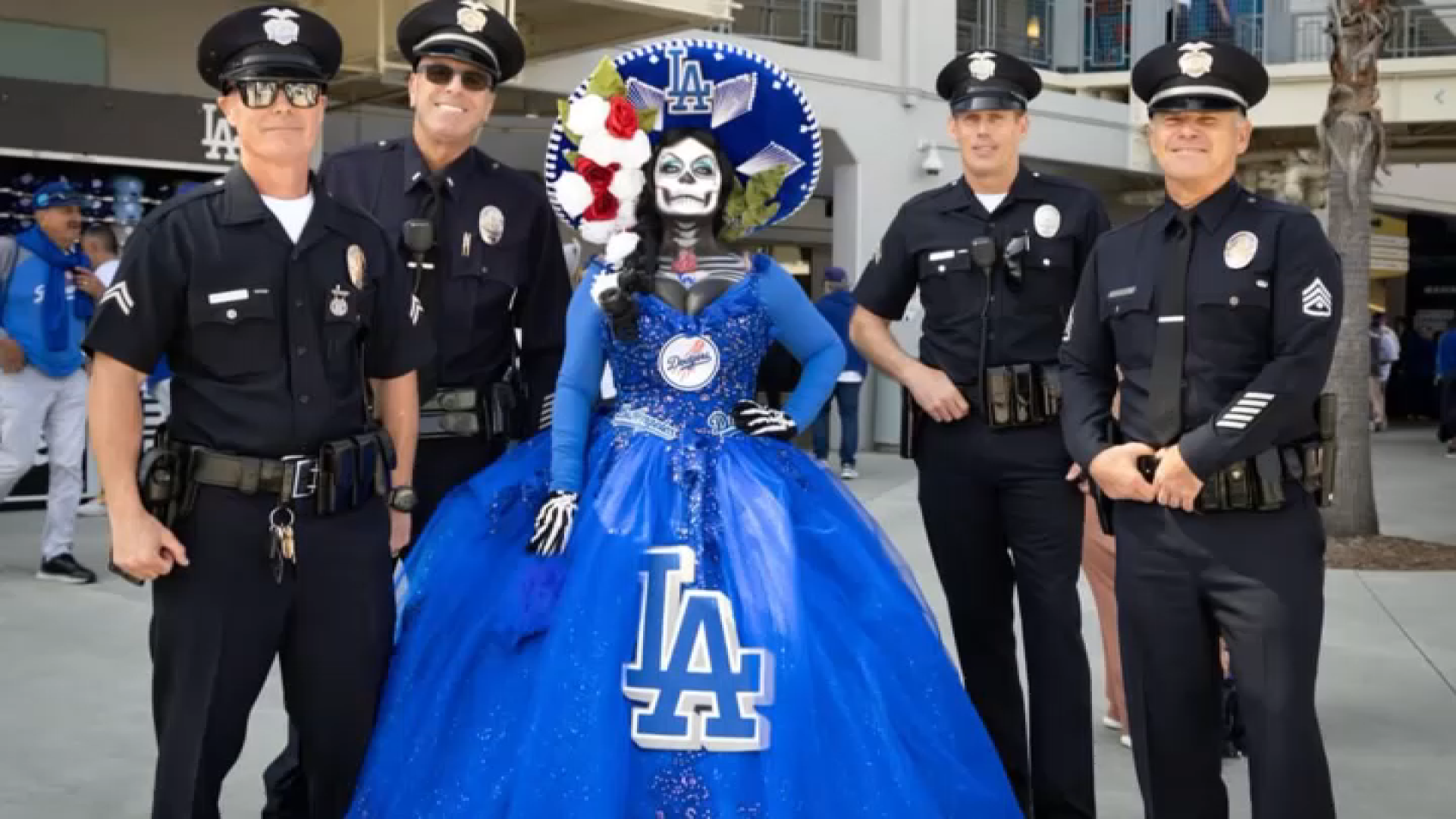A Riverside County man is suing U.S. Immigration and Customs Enforcement after the agency held him in a detention facility for more than a month, even though he's a U.S. citizen.
Brian Bukle, 62, came with his family to the U.S. from the British Virgin Islands when he was 2 years old and has been a U.S. citizen for more than 50 years.
Last summer, Buckle was set to be released from prison after serving two years for assault and possession of a firearm. But on the day he was scheduled to get out, contractors for ICE showed up at the California Correctional Institution in Tehachapi and took him into custody.
He spent 36 days at the Mesa Verde ICE Processing Facility in Bakersfield before the government acknowledged his U.S. citizenship and released him.
Get top local stories in Southern California delivered to you every morning. Sign up for NBC LA's News Headlines newsletter.
"The things that he went through there, no one should have to go through," said his brother Basil Bukle. "We are all U.S. citizens through naturalization through my parents."
Jenny Zhao, a senior staff attorney at Asian Americans Advancing Justice-Asian Law Caucus, the organization filing the suit on behalf of Buckle, said the problem began with the California Department of Corrections and Rehabilitation.
"As soon as he entered CDCR custody, CDCR essentially called ICE on him and informed ICE that they had a foreign-born person who had entered custody," Zhao said. "This was despite the fact that Mr. Bukle had repeatedly told CDCR staff that he was in fact a U.S. citizen, despite having been born abroad."
Local
Get Los Angeles's latest local news on crime, entertainment, weather, schools, COVID, cost of living and more. Here's your go-to source for today's LA news.
In a statement to NBC Los Angeles, CDCR declined to comment on Brian's case, but said the corrections department policy requires them to notify ICE about an individual in custody if it's determined they may be foreign born, and it's up to immigration authorities to verify their citizenship status.
"If the information provided during reception, or anytime thereafter, indicates the individual may be a foreign national, staff completes a detainer summary and sends the individual's name and information to ICE, who makes the determination of whether to put an immigration hold or detainer on the individual and is responsible for forwarding the hold or detainer to CDCR," the statement said.
During the more than five weeks that Brian was under ICE custody, he also repeatedly asserted he was a U.S. citizen to agency officials, according to the lawsuit.
"Mr. Bukle did try to raise the fact that he was a U.S. citizen with ICE repeatedly," said Vasudha Talla, director of the Immigrants' Rights Program at the ACLU of Northern California. "When he was first taken to ICE's field office in Bakersfield, he not only told officers there he was a U.S. citizen, he also had his brother call the office to find out what the officers needed to demonstrate citizenship."
ICE did not respond to the claims saying the agency does not comment on pending litigation.
"This is ICE's worst nightmare, detaining a U.S. citizen," said John Sandweg, who served as acting director of ICE during the Obama administration and was not involved in Brian's case.
Sandweg argues that ICE officers not only should have checked Brian's citizenship claims before taking him into custody, but had ample time during his detention to verify that he was a U.S. citizen.
"It's pretty clear to me that no efforts were made during that time frame," he said.
Brian's lawsuit accuses ICE of false imprisonment and endangering his life by placing him in a detention facility in the midst of the COVID-19 pandemic, when outbreaks at immigration facilities were rampant.
"I was concerned," his brother said. "I was telling him that he needed to make sure that he was protecting himself. That if he had a mask, he needed to wear a mask."
Brian was finally released after attorneys showed an immigration judge proof of his citizenship, records they say ICE had access to all along.
While his brother is now free, Basil said he's still too upset to talk about what he went through.
"Even today, even now, I am feeling distressed and pain of that," his brother said. "That he had to go through that and no one should have to go through that.
Brian's lawsuit comes on the heels of a Government Accountability Office report that found ICE officers are not adequately trained to verify citizenship status, and recommended changes to the way the agency conducts interviews and background checks. Since 2015, ICE has arrested 674, detained 121 and deported 70 potential U.S. citizens, according to the report.
Brian's family and attorneys hope the lawsuit will help stop this from happening to another U.S. citizen.
They're urging sate lawmakers to pass AB 937 or the Vision Act, which would close loopholes in California's sanctuary laws, and prohibit the CDCR from transferring inmates to ICE custody upon their release.



